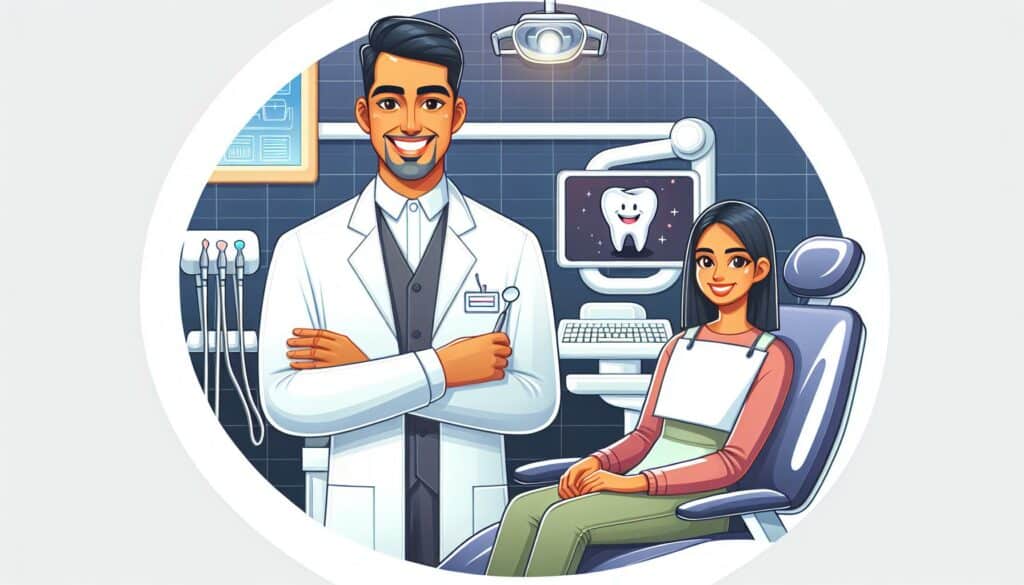Despite the negative stigma, people living with HIV can access dental health services. They must disclose their status to dentists so that they can prepare a dental treatment plan.
It is unethical and unlawful (under the Equality Act) for a dentist to refuse to treat a patient because they have HIV. It also makes no sense because the risk of infection to dental professionals is extremely low.
Dentists have a duty to provide care
The law in the United States says that dentists must treat patients regardless of their HIV status. It also requires them to disclose information in a manner that does not jeopardize their patient’s privacy. This includes obtaining a signed medical records release from the patient. It is advisable to err on the side of caution and ask for a release form that specifically excludes confidential HIV-related information. This will help prevent the doctor from being sued in the event that a subpoena is served on them.
It is important to note that the virus that causes HIV, which leads to acquired immunodeficiency syndrome or AIDS, can be controlled with proper treatment. Antiretroviral therapy or ART can reduce the viral load to undetectable levels. These medications can allow a person with HIV to live long, healthy lives.
Some countries have laws that permit a dentist to work with people who are HIV-positive if they meet certain criteria. These include a positive CD4 count and an undetectable HIV viral load for at least three months. In addition, the dentist must follow strict infection control procedures.
Some of the most common dental procedures involve contact with blood, and some of these can transmit HIV if they are not performed correctly. It is important that people with HIV tell their dentists about their status so that the treatment can be carried out safely for all parties involved. It takes courage to be honest, but it is a necessary step for ensuring that patients with HIV receive the care they need.
Dentists have a duty to disclose information
A patient has the right to know who is treating them and what a procedure will involve. This includes the patient’s medical history, including HIV status. A dentist has a duty to disclose this information to the patient, and they should not be forced to keep it secret.
The Court’s ruling reversed two lower court decisions that would exempt private health care providers from a State law barring discrimination on the basis of HIV status. In addition, the decision allows patients who are denied treatment by a private dentist to sue in State court. This is a significant change for patients with HIV, who have previously only been able to sue in Federal courts.
Dentists should not use unnecessary additional precautions that tend to stigmatize a patient simply because they are HIV positive. For example, they cannot limit a person’s scheduled times or insist that they come in at the end of the day. This type of discrimination is in violation of the ADA.
There is also no reason for a dentist to refuse to treat an HIV-positive patient. Even if the dentist feels they are not equipped to provide the necessary treatment, they must still nominally notify their licensing authority. This will allow the regulatory body to monitor them on a regular basis for compliance with infection control procedures and for incapacity.
Dentists have a duty to refer
Dental care is a unique challenge for people living with HIV. Many procedures require contact with blood, and a person who is HIV-positive poses a risk of transmission of the virus to others. However, these risks can be minimized by using proper precautions and adhering to best practices.
In 1998, the Supreme Court ruled that a dentist may not refuse to treat a patient with HIV. Sidney Abbott disclosed her status to a dentist and asked him to fill a cavity. The dentist refused, but offered to do so in a hospital. She sued, claiming that the dentist violated the Americans with Disabilities Act (ADA).
The Court found that the dentist could not discriminate against her because she had a disability – asymptomatic HIV – and that she was protected by the ADA. This ruling reversed two previous decisions and allowed patients to sue dentists in state courts for damages resulting from discrimination based on HIV-positive status.
When a dentist refers a patient to a specialist, they must ensure that the specialist meets the necessary qualifications and has adequate experience to perform the treatment. Otherwise, the dentist can be held liable for negligent referral. In addition, the dentist must communicate with the patient and ensure that they understand what to expect from the specialist’s treatment. This includes explaining the procedure in a clear way and assessing the patient’s risk of HIV transmission.
Dentists have a duty to treat patients
Despite the stigma of HIV, people with the virus still have a right to dental care. This right should not be compromised by a dentist’s fear of transmitting the virus to his or her patients. However, if a patient is suffering from advanced HIV disease or opportunistic infections, the oral healthcare professional may need to prioritize medical treatments over oral health procedures. This is important to protect the life of the patient and prevent transmission of HIV from uninfected coworkers.
Nevertheless, some dentists refuse to treat HIV-positive patients due to their fears of transmission. These fears may be based on a lack of knowledge and understanding of HIV, or on concerns about infection control measures in the dentist’s office. In one case, a dentist refused to fill a cavity for Sidney Abbott because she was HIV positive and had not yet developed AIDS. This discrimination was in violation of the Americans with Disabilities Act (ADA).
It is imperative that dentists have a good working understanding of HIV and how it can be treated through medication. It is also important for them to know the risks of infection and how to prevent them. Currently, there is no cure for HIV, but if it is treated with antiretroviral therapy, or ART, a person can live a long and healthy life.






